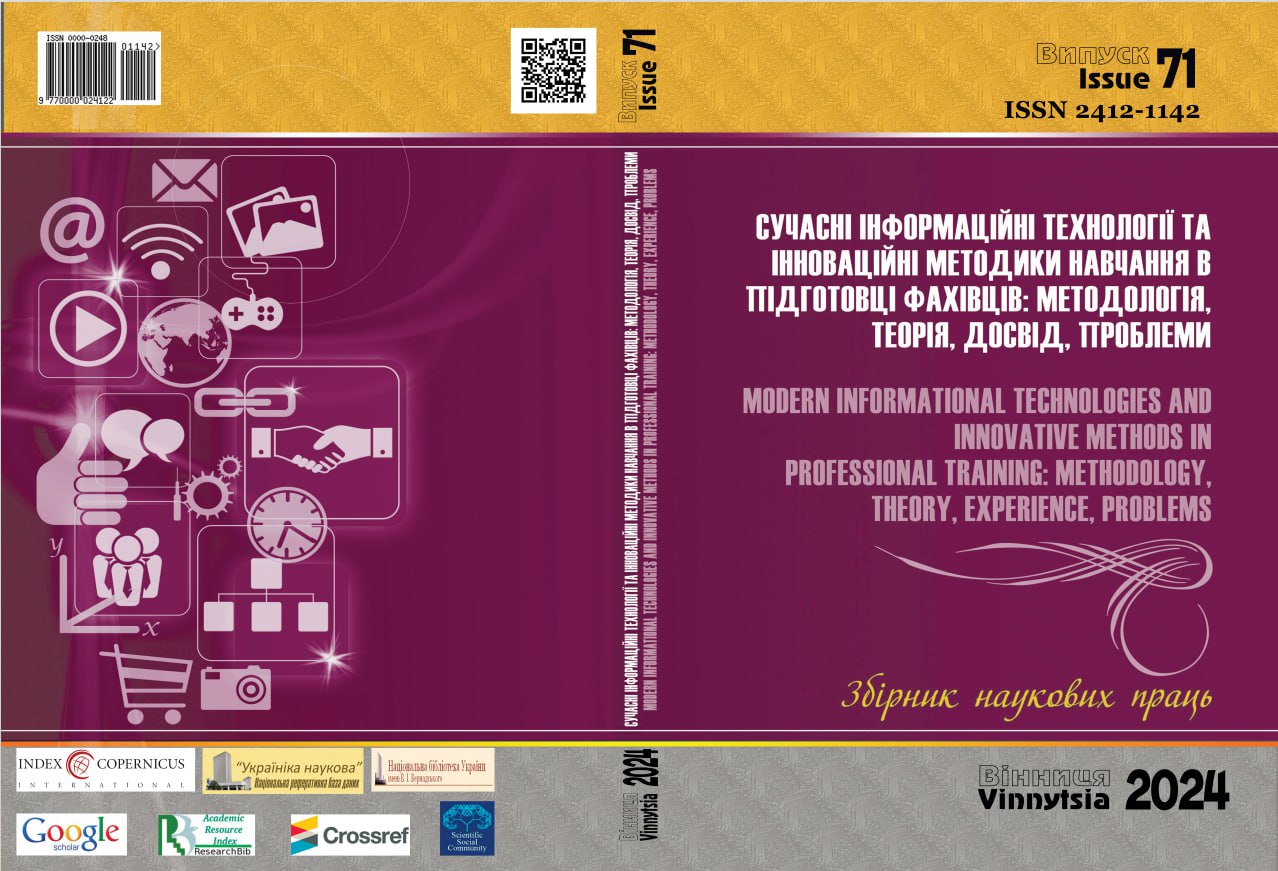ESSENCE AND STRUCTURE OF GENESIS «EMOTIONAL INTELLECT OF FUTURE OFFICER»
DOI:
https://doi.org/10.31652/Keywords:
emotional intellect, identification of emotions, use of emotions, understanding of emotions, conscious regulation of emotions, empathy, genesis of emotional intelligence, future officersAbstract
The modernization of professional military training, the need to manage change, make creative decisions, constantly adapt, the ability to critically perceive information, build relationships on trust, communicate effectively, and develop super-professional skills increases interest in studying the behavioral reactions, desires, and feelings of future officers. Today it is relevant to study the feelings and emotions of future officers and how feelings and emotions motivate a person to take certain actions. Almost all people constantly experience a wide range of emotions, thanks to which we adapt to society and react to any situation, as well as to the actions or words of others. However, if the external stimulus is very strong or unexpected, the reaction can be too violent or destructive, which a person will regret later. If emotions rule, a person is likely to take out pent-up irritation on loved ones or feel apathetic, perform poorly at work, stop planning for the future, etc. Emotional intellect skills allow to organize thoughts and understand how to get the best result here and now. Evidence also shows that emotional intellect is important for personal fulfillment and is considered a potential factor in life success. So what is emotional intellect? On the one hand, it's a complex story, it's not just about how you perceive your emotions and how well you know what to do with them. On the other hand, it is also about how a person influences the emotions of others, how he / she "feels" them with his / her brain and how a person expresses them with his / her body, and whether he / she can use feelings as a way to achieve a goal. Thus, the article, firstly, is devoted to the disclosure of the concept of "emotional intellect"; secondly, the article describes the systematics of approaches to this phenomenon from the point of view of philosophy, psychology, pedagogy, etc.; thirdly, the authors reveal the historical stages of the formation of the theory of emotional intellect, as well as describe the periods of studying emotional intellect by scientists of that time and modern figures; fourthly, the authors attempted to distinguish own concept and understanding of "emotional intellect"; fifthly, the general characteristics of a person with high and low levels of emotional intellect are presented. The paper is of a theoretical nature.
Downloads
References
Vlasova O. I. Psychology of social abilities: structure, dynamics, factors of development: a monograph. Kyiv: VPC KNU, 2005. 308 p.
Goken E. Sub-threshold autism traits: The role of trait emotional intellect and cognitive flexibility. British Journal of Psychology. 2014. № 105. P. 187. 199.
Phenomenology of emotional intellect: Study guide. Chernihiv: Desna Polygraph, 2016. 312 p.
Zarytska V.V. Emotional intellect as a component of personality's readiness for professional activity. Bulletin of H. S. Skovoroda Kharkiv National Pedagogical University. Series "Psychology". 2014. № 49. С. 42-51.
Zarytska V. V. Theoretical and methodological foundations of the development of emotional intellect in the context of professional training: a monograph. Zaporizhzhia: KPU, 2010. 304 p.
Kremen V. G., Ilyin V. V. Philosophy: thinkers, ideas, concepts. Kyiv: Book, 2005. - 528 с.
Côté S. The ability to regulate emotion is associated with greater wellbeing, income, and socioeconomic status. Emotion. 2010. №10. P. 33-92.
Theoretical analysis of the concept of "emotional leadership" as one of the types of leadership. Actual Problems of Psychology: Collection of scientific papers of the H.S. Kostiuk Institute of Psychology of the National Academy of Pedagogical Sciences of Ukraine. 2019. №54. С. 55 - 56.
History of the development of the concept of emotional intellect. Youth: Education, Science, Spirituality: Abstracts of the XI All-Ukrainian Scientific Conference. Kyiv: University "Ukraine", 2014. P. 274 - 276.
Order on approval of the standard of higher education in the specialty 254 "Provision of troops (forces) for the first (bachelor's) level of higher education. Electronic resource.. Website: URL: https://mon. gov.ua /storage/app/media/vishcha-osvita/zatverdzeni%20standarty/12/21/254-zabezpec hennyaviysk -sil-bakalavr.pdf.
Bilyk O., Karkovska V., Tsyhylyk N., Vaskovych I. Influence of emotional intelligence development on the formation of leadership skills of military personnel. Journal "Scientific innovations and advanced technologies". No 10(12). 2022. (Series "Public Administration"), Electronic resource. http://perspectives.pp.ua/index.php/nauka/article/view/2588/2594
Psychological support for the development of leadership skills of future officers: Methodological guide. N. Agaiev, O. Kokun, I. Pishko, et al. Kyiv: Research Center for Humanitarian Problems of the Armed Forces of Ukraine, Ministry of Defense of Ukraine, 2014. 289 p.
Rozhdestvenskyi A. Leadership on the battlefield: a study of military leadership in Ukraine. 2020. Electronic resource. https://lvbs.com.ua/news/liderstvo-na-poli-boyudoslidzhennya-vijskovogo-liderstva-v-ukrayini.
Savchuk M.R. Theoretical foundations of the study of emotional intellect electronic resource.: http://www.economy.nayka.com.ua/?op=1&z=5608.
Tkachuk P. Leadership of a sergeant and officer (psychological aspect): Lviv: Tutoral, 2010. 145 p.
Emotional intellect in the context of modern psychological research. Psychology of personality. 2011 р. № 1. С. 282-288.
Downloads
Published
Issue
Section
License
Copyright (c) 2024 Іванченко, Білоножко Наталія Йосипівна

This work is licensed under a Creative Commons Attribution 4.0 International License.





